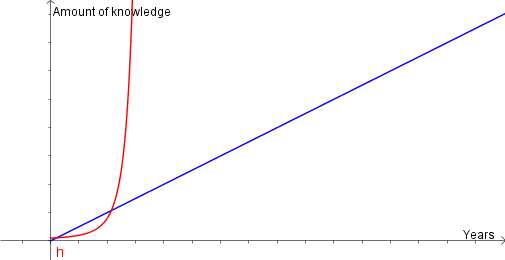There is lots of research which shows that human beings are complex. In fact, although we can be modeled as groups of people mathematically in many circumstances, individual humans are too complex for mathematical analysis to much use in exactly predicting our behaviour. However humans do follow patterns of behaviour, and we can predict what a possible range of behaviours are we expect to see. Obviously this is why our social structures work because this predictive ability is easy enough that one can do it without the aid of a computer.
However this behaviour does follow the mathematical rules of a chaotic system. Chaotic systems are systems which typically follow fairly predictable patterns, but for which small differences in input can lead to widely different outputs. If you want to learn more about this I recommend reading some of Keith Devlin’s work in this area, he explains it in an easy to follow way. Humans are chaotic systems because they take input from the outside world, process it, and modify their own behaviour, which leads to changes in their environment to which they again react, etc… This leads to what we call a feedback loop. Often these feedback loops stabilize, which leads to predictable behaviour, but occasionally they can destabilize and chaos erupts.
We have all seen this as educators. Johnny is a perfect angel every day, and then one day he comes into school and gets into a fight in his first period class. I think sometimes we blame ourselves when these things happen, and we wonder why they happened. Assuming you treat all students very similarly, and they come to school with pretty much the same kinds of things happening in their lives, you might wonder why some students are bright and cheerful despite their possible misfortunes, and others are a bad mood. I think if you look at it from the perspective that they are chaotic systems, you can assign a lot less of the blame onto yourself.
I think that this boils down to, not all students, even ones who seem very similar on the surface, are going to react to you in the same way. Even a minor variation in what is going in their lives can lead to very different attitudes from students, and you have to accept that.
There is some recent research though that shows that a lot of chaotic systems have large areas of stability. The implication of this fact to educators is that if we moderate our own behaviour and feedback to guide students into these areas of stability, we can encourage students to behave in a more predictable manner. I think it is well established that a good teacher respects their students, treats them fairly, cares for their students in such a way as to make them feel comfortable in the classroom. These types of behaviours from the teacher are reinforcing the stability that our students need so much in their sometimes chaotic lives.
